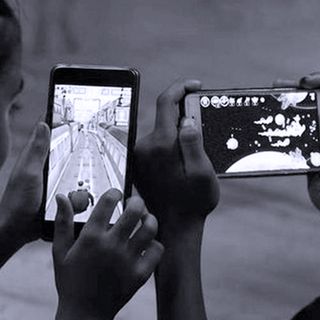
Want a Divorce? Tech Makes It Easier
Technology won’t judge your choices.

A spate of new online start-ups and apps in India are seeking to bring legal support to a tech-savvy demographic, especially when it comes to one particular legal process: divorce.
“Divorce rates have gone up 13 times, but the system hasn’t changed. Women still don’t know their rights. They are still so scared to take that first step,” says Vandana Shah, an advocate.
Shah launched DivorceKart, an app aimed at facilitating the divorce process, in 2017. Since then, the app has seen 10,000 downloads. On it, an individual can get in touch with any of the 15 lawyers the company currently works with. “You can ask the most basic questions — how can I file for a divorce, in which court, how do I approach a lawyer — all such queries are welcome,” says Shah. “You have pre-vetted and screened lawyers waiting to help you with answers even in the middle of the night.” Users can also join support groups, book appointments with lawyers, and with their help and advice, take the case forward.
The app was inspired by Shah’s own divorce process, which took 10 years to finalize. “Even the lawyers I approached weren’t helpful; nobody was transparent about the process,” she says.
A similar experience drew Monika Raheja, 46, an artist manager from Mumbai, to use Shah’s app. For her, divorce was about constantly running between five lawyers, family and friends. “Lawyers were critical of other lawyers, some friends said, ‘Make the marriage work,’ despite heavy amounts of adultery on my husband’s part and all forms of violence that I was subjected to, and it took some time for the family to ease up with the idea of a divorce,” says Raheja.
With DivorceKart, it was fairly easy. “While there were so many rounds of questions and answers, I was at least made aware of my rights, and things like it’s not the women who have to leave their homes all the time,” she adds.
Legistify and My Advo, two other online marketplaces for legal help, were both founded on the principle that users should have a basic awareness of their rights and legal options. A bit older than DivorceKart, and not limited to divorce advice only, they each have a much larger lawyer-user base. The 7,000 lawyers on Legistify cater to 700 districts in India; 10,000 on MyAdvo offer help in more than 600 districts.
“Everyone will advise on how to get married, but when a woman wants to get out of it, they’ll say, ‘Have a baby, it’ll all be fine.’ Divorce hasn’t ever been, and still is never, an option.”
On Legistify, lawyers and case managers track their case and ask questions — sometimes for free, and other times for a cost starting at Rs. 1500.
“It began as a Quora for legal inquiries and through the process we realized that the legal system is so archaic, nothing is digitized, even lawyers had a problem maintaining cases,” says CEO Akshat Singhal. “So Legistify was created to streamline things along with making things much easier for users as well as lawyers.”
Similarly, MyAdvo, aims to bridge the gap between lawyers and users through technology. MyAdvo has seen a growing demand for property advocates, consumer cases, employment lawyers – and divorce lawyers.
All platforms say their users are fairly evenly split across genders. DivorceKart says its users are 50-50 men and women, while Legistify and MyAdvo’s both break down 60-40. But there’s a sense that this is just the beginning of women’s use. “There has been a 107% increase in women users over the last year,” says Apeksha Pandita, content marketing associate with MyAdvo.
Pandita says, on their portal, women have been seeking help and advice regarding employment, cyber crime and divorce, as well as dowry, sexual harassment, domestic violence, family law and abortion.
“We feel more women may be using it because they feel safer and more open to interact with a medium which can easily educate you and help you seek legal advice and solutions assured with a guarantee of trust, confidentiality and easy accessibility,” Pandita adds.
“Even if it is anonymously, at least they know they can do it themselves without being dependent on anyone else,” says Legistify’s Singhal.
From times when one person would have to scour for the right lawyer, today legal advice is available at a click or swipe. The only real barrier left to divorce in India appears to be attitudes. All three platforms report most of their users come from Tier-I and Tier-II cities, which Shah says is reflective of social barriers.
“It all boils down to one’s image and stigma — men in smaller cities don’t think it’s macho enough to file for a divorce, women in bigger cities think of compromising till the very end to avoid being judged in their social circles,” Shah says.
Raheja, whose divorce came through only weeks ago after two long years, says that kind of judgment is alive and well.
“Everyone will advise on how to get married, but when a woman wants to get out of it, they’ll say, ‘Have a baby, it’ll all be fine.’ Divorce hasn’t ever been, and still is never, an option,” says Shah.
Until now.
Anubhuti Matta is an associate editor with The Swaddle. When not at work, she's busy pursuing kathak, reading books on and by women in the Middle East or making dresses out of Indian prints.
Related


In The Near Future, Parents Will Have to Worry About Peer Pressure — From Robots
